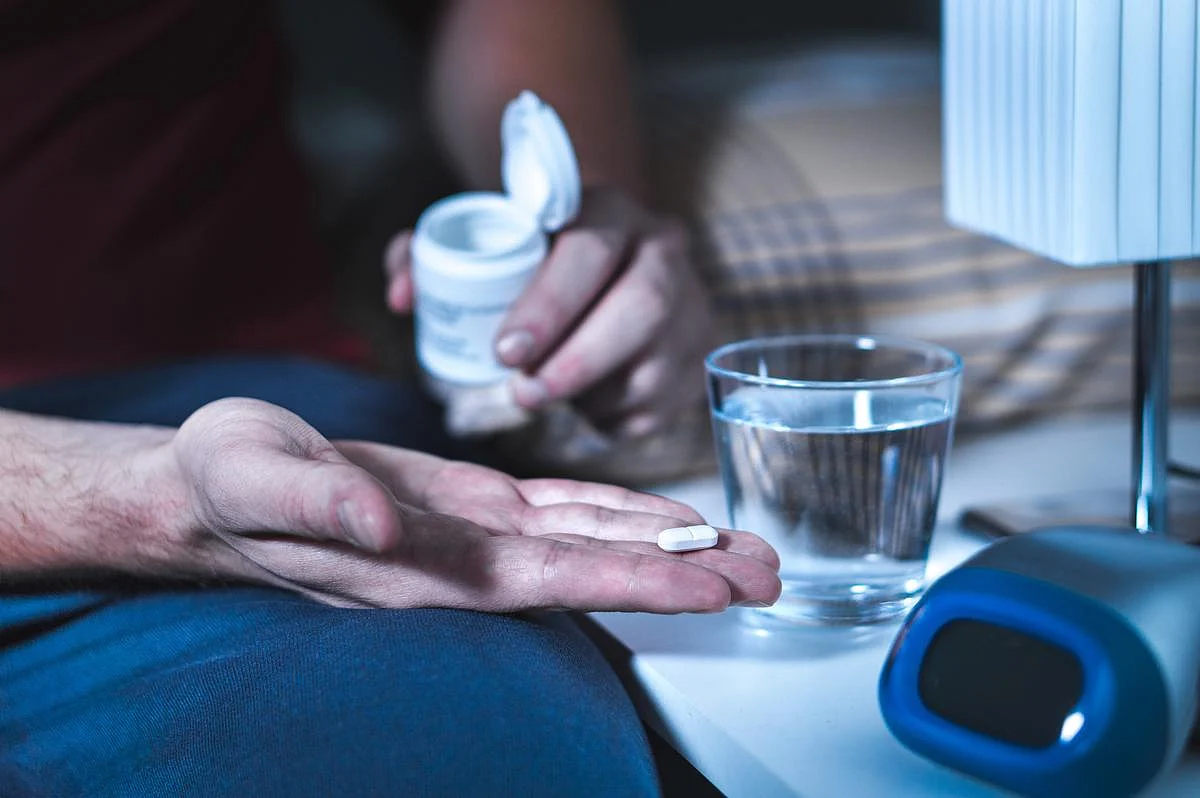Nocturnal Hypertension Control Improved With Bedtime Antihypertensive Dosing
WEDNESDAY, July 16, 2025 -- Bedtime dosing with antihypertensive medication yields better nocturnal blood pressure control and improved circadian rhythm, according to a study published online July 9 in JAMA Network Open.
Runyu Ye, Ph.D., from Sichuan University in Chengdu, China, and colleagues compared the effects of morning versus bedtime antihypertensive medication administration on nocturnal blood pressure reduction and circadian rhythm in a randomized trial conducted at 15 hospitals involving patients with hypertension. Patients without prior antihypertensive treatment or who had discontinued antihypertensive agents for two weeks were randomly assigned to the morning (6 a.m. to 10 a.m.) or bedtime (6 p.m. to 10 p.m.) dosing groups (352 and 368, respectively); all patients received a single pill containing olmesartan (20 mg) and amlodipine (5 mg) daily for 12 weeks.
The researchers found that patients in the bedtime dosing group showed significantly greater reductions in nighttime systolic blood pressure and nighttime diastolic blood pressure compared with patients in the morning dosing group (between-group differences, −3.0 and −1.4 mm Hg); better nocturnal systolic blood pressure control was seen (79.0 versus 69.8 percent) and circadian rhythm was improved. There was no difference in the incidence of nocturnal hypotension.
"These findings support the potential advantages of bedtime administration and offer new evidence to guide future research on antihypertensive chronotherapy," the authors write.
Disclaimer: Statistical data in medical articles provide general trends and do not pertain to individuals. Individual factors can vary greatly. Always seek personalized medical advice for individual healthcare decisions.
© 2025 HealthDay. All rights reserved.
Read this next
Cancer Survival Lower in Rural Areas
WEDNESDAY, Oct. 1, 2025 -- Five-year cancer survival rates for each stage of cancer (localized, regional, and distant) is lower in nonmetropolitan areas for Black and White...
Loss of Smell May Linger After COVID-19
WEDNESDAY, Oct. 1, 2025 -- Self-reported change or loss in smell or taste is an accurate signal of verified hyposmia after COVID-19, although there is also a high rate of hyposmia...
Elderly Patients Benefit From Screening Mammography
WEDNESDAY, Oct. 1, 2025 -- Patients with breast cancer diagnosed at 80 years of age or older who received screening mammography present with earlier-stage disease and have better...
More news resources
- FDA Medwatch Drug Alerts
- Daily MedNews
- News for Health Professionals
- New Drug Approvals
- New Drug Applications
- Drug Shortages
- Clinical Trial Results
- Generic Drug Approvals
Subscribe to our newsletter
Whatever your topic of interest, subscribe to our newsletters to get the best of Drugs.com in your inbox.


